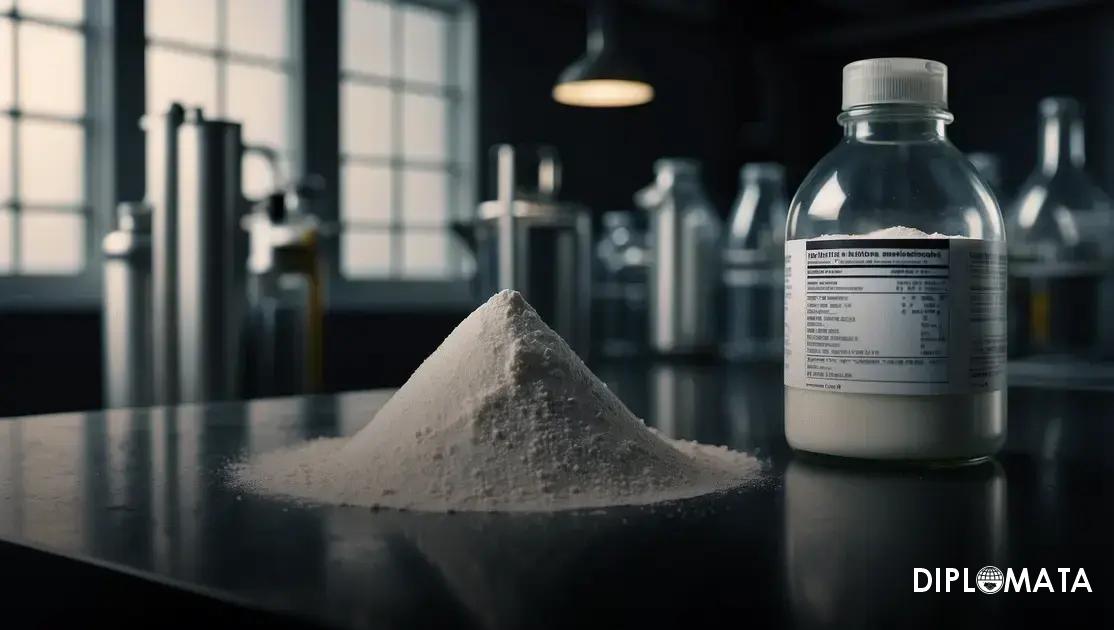Understanding Chemical Product Certifications
Chemical product certifications are essential for ensuring that chemical products meet industry standards and regulations. These certifications provide assurances regarding the safety, efficacy, and quality of chemical products, which is crucial for manufacturers, distributors, and consumers alike. In the competitive chemical industry, certifications can significantly influence purchasing decisions and market positioning.
Types of Chemical Product Certifications
Various types of certifications exist within the chemical sector, including ISO certifications, NSF certifications, and REACH compliance in the European Union. Each of these certifications addresses specific aspects of product quality and safety, ensuring that the chemicals produced meet the rigorous standards set by regulatory bodies. Understanding the differences between these certifications is vital for businesses seeking to establish credibility in their product offerings.
The Role of ISO Certifications
ISO (International Organization for Standardization) certifications are highly regarded in the chemical industry. They cover various aspects, including quality management systems (ISO 9001) and environmental management systems (ISO 14001). Achieving ISO certification demonstrates a company’s commitment to maintaining high quality and environmental standards, which can enhance its reputation and customer trust.
NSF Certification Importance
NSF International provides certifications that ensure products meet public health and safety standards. For chemical products, NSF certification is particularly relevant for those intended for use in food processing or pharmaceuticals. This certification assures customers that the products are safe for their intended applications, thus expanding marketability and consumer confidence.
REACH Compliance in the EU
REACH (Registration, Evaluation, Authorisation and Restriction of Chemicals) is a regulation in the European Union that governs the use of chemical substances. Compliance with REACH is mandatory for companies wishing to market their products in the EU. This certification process involves extensive documentation and evaluation of chemical properties, ensuring that the chemicals do not pose risks to human health or the environment.
Benefits of Chemical Product Certifications
Obtaining chemical product certifications offers numerous benefits to manufacturers and suppliers. Certifications can enhance a company’s marketability, foster trust among consumers, and facilitate access to international markets. Additionally, certifications can improve operational efficiency and reduce the risk of legal issues related to product safety and compliance.
How to Obtain Chemical Product Certifications
The process of obtaining chemical product certifications typically involves several steps, including documentation, testing, and application submission. Companies must prepare detailed technical files that demonstrate compliance with relevant standards. Partnering with certification bodies or consultants can streamline this process, ensuring that all requirements are met efficiently.
Challenges in the Certification Process
Navigating the certification process can present challenges, such as the complexity of regulations and the cost associated with testing and documentation. Companies may also face delays due to extensive review periods. Understanding these challenges is crucial for businesses to plan effectively and allocate resources appropriately for achieving certifications.
Importance of Staying Updated on Certifications
The chemical industry is subject to evolving regulations and standards. Staying updated on changes in certification requirements is essential for companies to maintain compliance and competitive advantage. Regular training and engagement with industry associations can help businesses stay informed about new developments in chemical product certifications.
Positioning DIPLOMATA as a Leader in Chemical Product Certifications
As a leading supplier of chemical and oil-based products in the United States, DIPLOMATA prioritizes obtaining and maintaining various certifications for its product range, including glycerin, palm kernel oil, and mineral oil. By focusing on quality and compliance, DIPLOMATA positions itself as a trusted partner in the chemical industry, serving clients across the East Coast, West Coast, Midwest, and Southern states.


